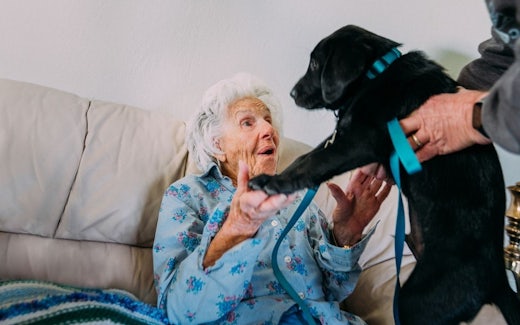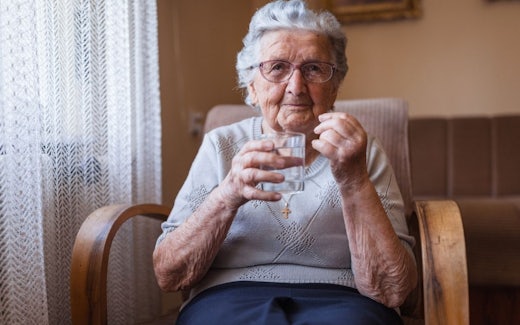Can your doctor force you into a nursing home in Australia?
Many Australians worry about whether a doctor can force them or a loved one into aged care, particularly when cognitive capacity and autonomy come into question.

Doctor, senior patient or writing prescription, results or notes for checkup, diagnosis or consulting. Mature female person, medical or healthcare worker filling paperwork or life insurance documents
The decision to move into a nursing home is one of the most challenging an older person and their family may face. Many Australians worry about whether a doctor can force them or a loved one into aged care, particularly when cognitive capacity and autonomy come into question. While doctors play a crucial role in assessing health and safety risks, the ultimate decision to enter residential aged care is more complex than a simple medical directive. Ethical considerations, legal frameworks, and the emotional weight on families must all be carefully balanced.
Understanding cognitive capacity and consent
In Australia, a doctor cannot unilaterally force someone into a nursing home. Every adult is presumed to have decision-making capacity unless proven otherwise (Australian Law Reform Commission, 2014). Cognitive capacity is the ability to understand, retain, and weigh up information to make informed choices. Even if an older person has health concerns or physical limitations, they still have the right to decide where they live—unless they are deemed legally incapable of making decisions (Capacity Toolkit, NSW Government, 2023).
If a doctor or healthcare professional believes an individual lacks the capacity to make safe decisions, they may recommend further cognitive assessments. If incapacity is confirmed, decision-making may then fall to an appointed guardian or enduring power of attorney (Australian Guardianship and Administration Council, 2022). This is where ethical tensions arise: at what point does an individual’s right to live independently give way to concerns for their safety?
Balancing risk and autonomy
Doctors and aged care professionals frequently encounter situations where an elderly person is struggling to live alone but remains adamant about staying in their home. The ethical challenge lies in balancing respect for personal autonomy with the duty of care (Ethics in Aged Care, AIHW, 2021). Some older Australians may refuse care despite significant health risks, such as frequent falls, malnutrition, or unmanaged chronic conditions. While a doctor can advise that moving into aged care would be safer, they cannot override a person’s rights if they have the capacity.
The difficulty is that risk tolerance varies. What a doctor or family member perceives as dangerous may not be seen the same way by the individual in question. Living at home with some level of risk may be acceptable to them if it means preserving their independence and sense of self (Aged Care Royal Commission, 2021).
Family stress vs. true necessity
Often, families feel torn between wanting the best for their ageing relatives and managing their own stress. Caring for an elderly parent can be overwhelming, leading some families to see residential aged care as the best solution—not necessarily because the older person needs it, but because it alleviates the burden on loved ones (Carers Australia, 2022).
While families play an important role in supporting their elderly relatives, their concerns must be weighed against the actual needs and desires of the person requiring care. An aged care home should not be the default option simply because it makes life easier for others. Community-based support, home care packages, and respite care services are all alternatives that can provide assistance while allowing an older person to remain in their familiar environment (My Aged Care, 2023).
Ethical and legal safeguards
To protect individuals from being placed into care against their will, Australia has strict legal and ethical frameworks in place. The Aged Care Act 1997 and various state-based guardianship laws ensure that people’s rights are upheld (Australian Government, 2023). If concerns arise about someone’s ability to live independently, a tribunal or court may be involved in determining their future care arrangements (NCAT Guardianship Division, NSW Government, 2023).
Doctors can provide medical opinions and recommend aged care, but they do not have the legal authority to compel anyone into a nursing home unless a guardian or legal decision-maker authorizes it. In extreme cases, such as advanced dementia or severe mental health decline, intervention may be necessary, but this is a last resort rather than a standard practice (Office of the Public Advocate, VIC, 2022).
Conclusion: Respecting rights while ensuring safety
While a doctor cannot force someone into a nursing home in Australia, they do have a responsibility to highlight risks and recommend appropriate care options. The decision must be made with careful consideration of an individual’s cognitive capacity, wishes, and well-being. Ethical dilemmas arise when balancing autonomy with safety, but the ultimate goal should be to respect personal choice while ensuring adequate support.
Families struggling with this decision should seek professional advice, explore home care options, and have open discussions with their loved ones. The answer is not always aged care—sometimes, with the right resources, older Australians can continue living safely in the community while maintaining their independence and dignity.


















